Nobody likes mosquitoes, but the mosquitoes sure do love us. Spraying your skin with DEET, picaridin, or oil of lemon eucalyptus keeps them at bay, but stores are full of wristbands, candles, clothing, and other products that claim to repel bugs without those nasty “chemicals.” Some of them might help, but none are reliable.
Disgusting mosquito from Shutterstock
If you’re only worried about itchy bites, you might be ok with a partially effective product. But it’s a different story if you’re trying to prevent disease. The Culex mosquitoes found throughout the US can transmit West Nile virus. Complications are rare, but it’s still good to avoid. More importantly, the Aedes mosquitoes found in the southern US, and in central and south America, can carry Zika as well as other nasty diseases like dengue, chikungunya, and yellow fever. If you live anywhere near the areas where Zika is spreading, and you or your partner are pregnant or could become pregnant, bring out the bug spray already. Don’t wait for nightfall, either — Aedes mosquitoes bite during the day.
Ultrasonic Devices Are Garbage
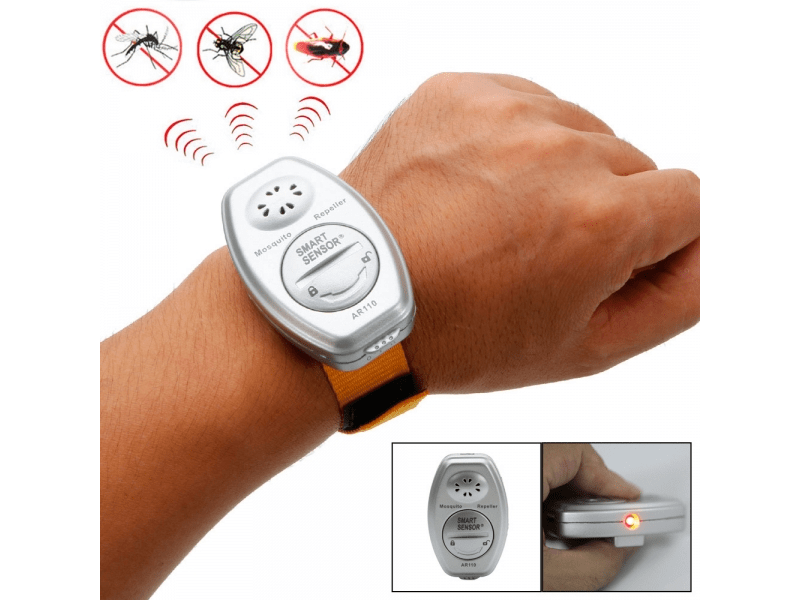
Ultrasonic devices don’t work, but they are still on the market in some places. Bugs do not care if you play high pitched noises at them. The American Mosquito Control Association sums up the science: “At least 10 studies in the past 15 years have unanimously denounced ultrasonic devices as having no repellency value whatsoever.” This Cochrane review has the details on those studies, but they summarize: “[Ultrasonic devices] are not effective in repelling mosquitoes and should not be recommended or used.” Case closed.
Wristbands Only Protect Your Wrists
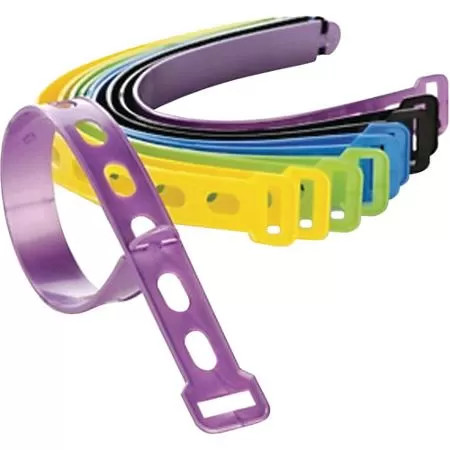
Snapping on a wristband sounds so easy, and the bands are cheap, but it’s a waste of time if the bands don’t actually work, and they don’t. Viatek, maker of Mosquito Shield Bands, recently had to pay a fine to the Federal Trade Commission for saying their wristbands can protect you from mosquitoes, when there is no evidence that they do.
One peppermint oil wristband, when tested, only reduced the rate of mosquitoes landing on the person’s lower forearm. So, basically, it can protect your wrist, but not really your upper arm, and definitely not your whole body.
Other types of wristbands don’t fare any better. A study published in the New England Journal of Medicine found that both DEET and citronella wristbands offered no meaningful protection. Another study, published in Acta Tropica, tested wristbands with geraniol, lemongrass, and citronella oils, likewise with terrible results. (One citronella wristband got its wearer more bites compared to an unadorned arm.)
Clip-On Devices Only Work If You Sit Still
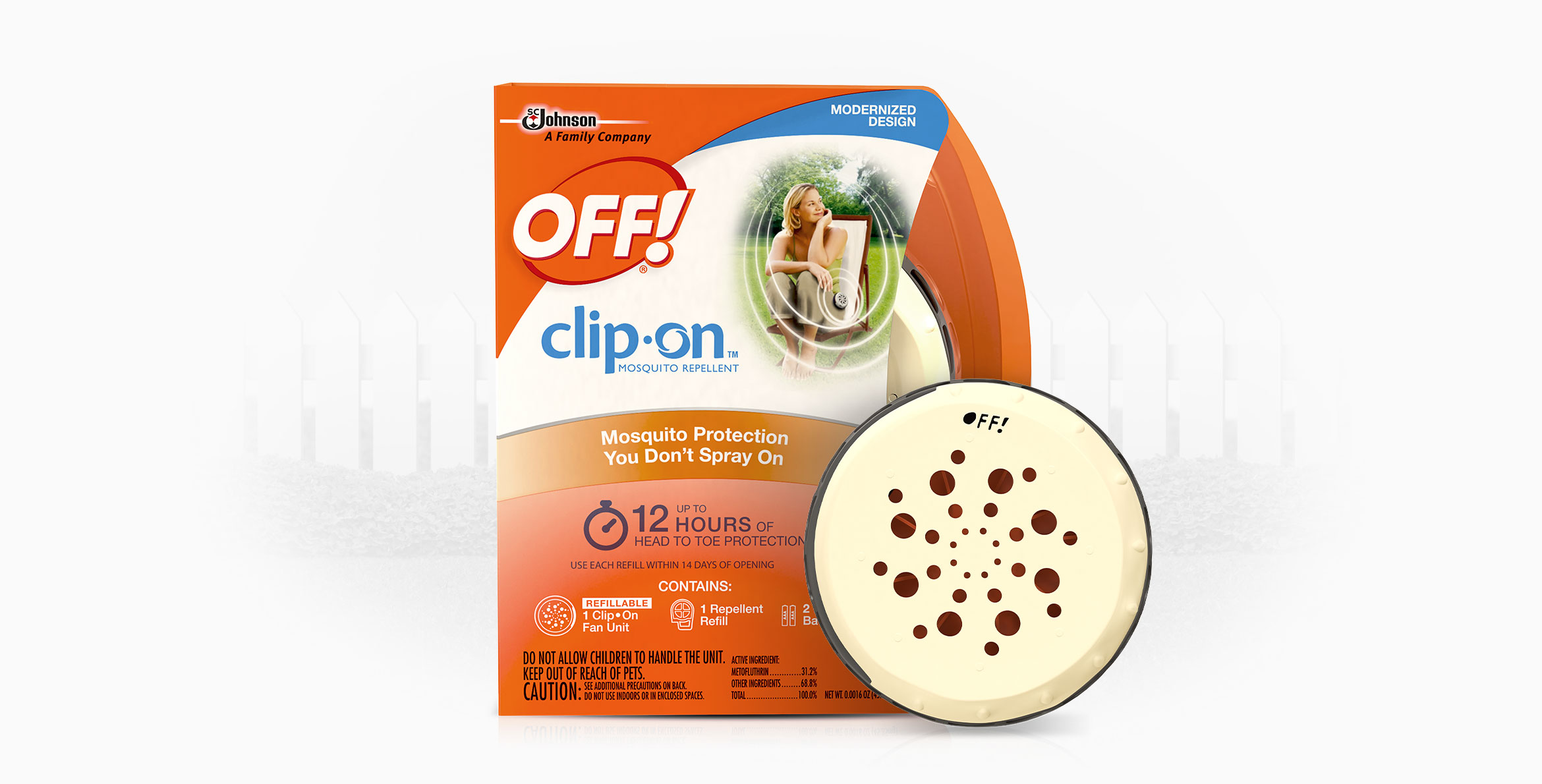
If you can rely on the air around you being stagnant, a clip-on device can repel mosquitoes by surrounding you in a cloud of repellent. These devices, like the Terminix Sidekick and the Off Clip-On, have a battery-powered fan that helps to circulate the repellent.
If you’re moving, or if it’s a windy day, the repellent won’t be able to surround you. But in the right conditions, both devices reduced mosquito landings by about 90 per cent. That’s not perfect, so don’t rely on it to prevent diseases like Zika. But if you’re just looking to keep itchy bites at bay, this is a reasonable, though pricey, way to do it. The devices cost around $US8 ($11), with refills going for $US1 ($1)-2 apiece.
Some Plants Make Natural Repellents, But Planting Them In Your Garden Isn’t Enough

Citrosa, not actually a mosquito-repelling wonder.
Citronella comes from a plant, after all — a type of lemongrass. Other plants reputed to have mosquito-repelling properties include catnip, peppermint, lemon balm, and a variety of geranium called Citrosa. But it’s not enough to just have the plant nearby. Crush a leaf and rub it on your skin, and then maybe — but even that is an iffy proposition, since many plant oils evaporate quickly. If you’re rubbing plant leaves on your skin in your backyard in hopes of repelling mosquitoes, you should probably stop what you’re doing and go buy some oil of lemon eucalyptus-based repellent.
Traps May Attract More Mosquitoes Than They Kill
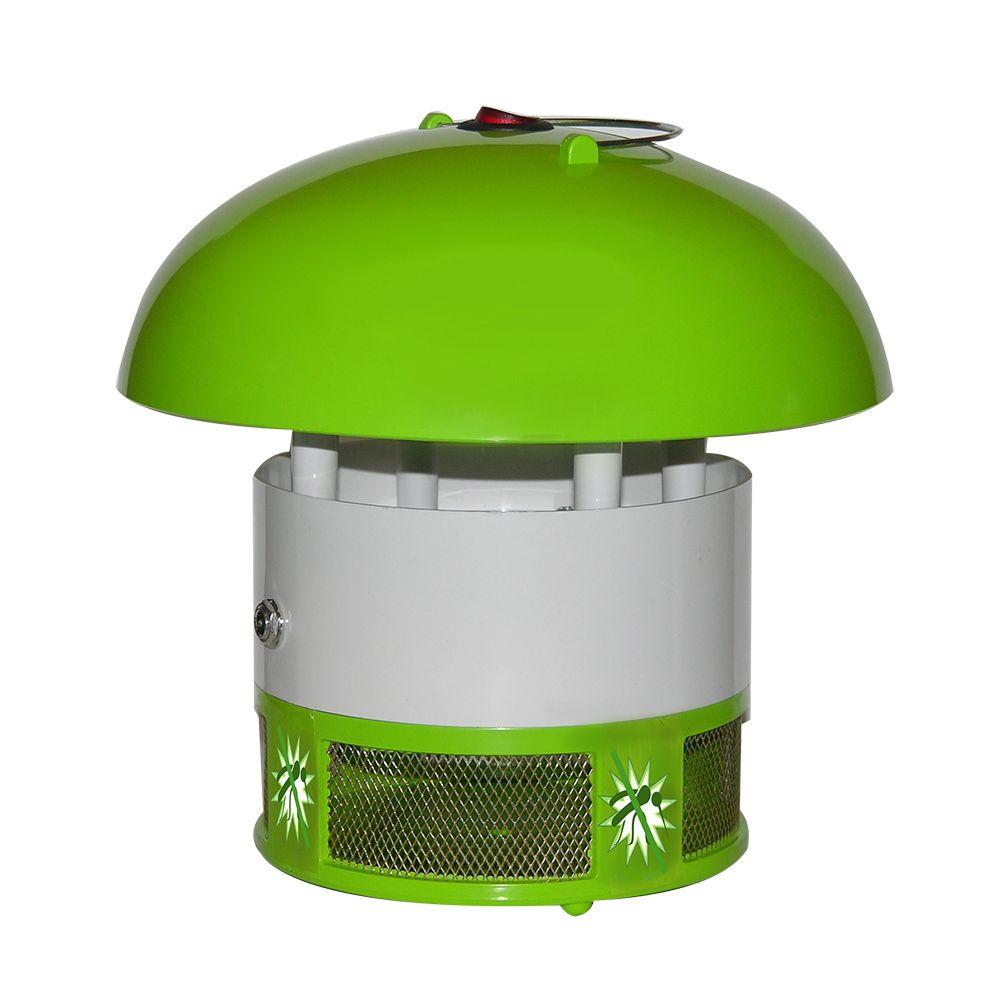
According to the American Mosquito Control Association, mosquito traps do kill mosquitoes, but that doesn’t necessarily make them a good thing to have in your yard. The traps have to attract the mosquitoes somehow, and sometimes they do the job too well:
Depending upon their placement, wind direction, and inherent trapping efficiency, traps may actually draw more mosquitoes into an area than they can possibly catch. Thus, the homeowner must still use repellents and practice source reduction methods [like draining standing water] as adjuncts to realise any measure of relief.
Again, this won’t eliminate mosquitoes, but if you’re interested, try a trap in addition to repellents. Better yet, convince your neighbours to put one in their yard.
Candles Provide Partial Protection (Depending On Which Way the Wind Is Blowing)
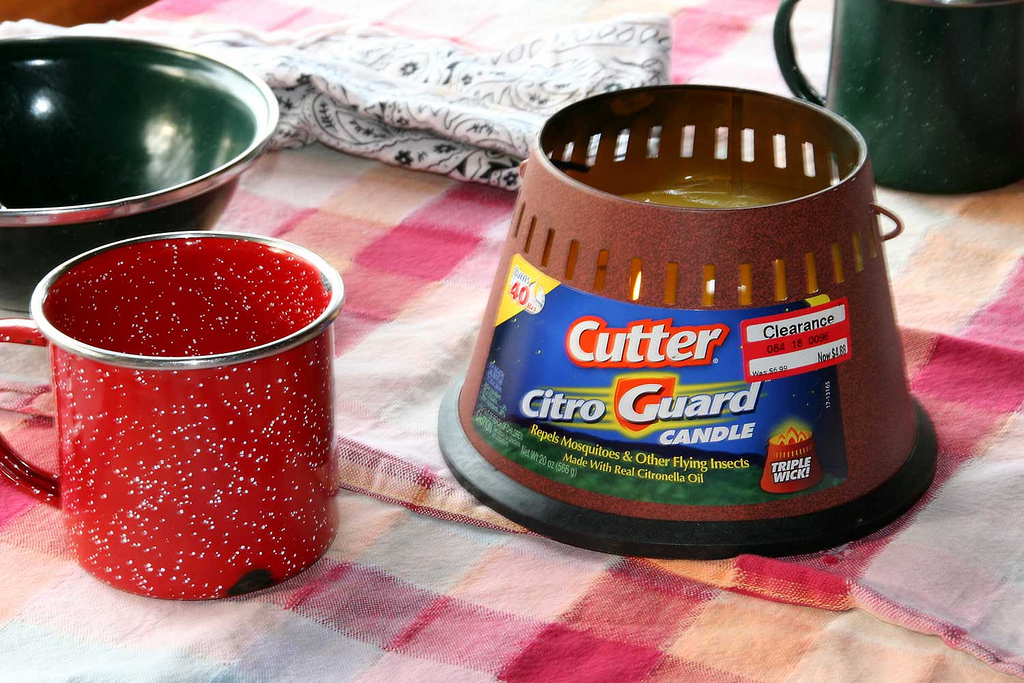
Citronella candles are a popular, natural bug repellent, but they don’t seem to work any better than plain candles.
Mosquito sticks, an incense-like product that’s popular abroad, did work in this test published in the Journal of the American Mosquito Control Association. Test subjects saw a 73 per cent reduction in mosquito landings, but they were downwind of the smoke. Sticks may make sense in smaller, enclosed spaces, but if you expect to move around the backyard, don’t expect the stick’s effects to follow you around.
Repellent-Treated Clothing Works, But Not Completely

Permethrin-treated clothing can kill or incapacitate mosquitoes that land on it. But as Consumer Reports recently found, clothing doesn’t provide perfect protection, and the repellent can wash off over time.
A more in-depth test, published recently in PLOS ONE, found that newly treated clothing provides fairly good protection, if you choose long sleeves and pants. Short sleeved shirts only provide partial protection to exposed skin. Clothing might also leave some leftover repellent on your skin, to give you a small amount of protection once you remove the clothes.
You can buy permethrin spray to treat your own clothing, if you like, but expect it to wash off even faster than the factory-treated clothing. It’s also fine to spray your clothes with whatever repellent you’re using on your skin. The Consumer Reports team found that clothing sprayed with 30% DEET worked at least as well as the store-bought shirts.
So, repellent-treated clothing can’t totally keep mosquitoes from biting, but if it’s new, it can definitely help. You can use it alongside a skin spray, of course, just like we recommend for ticks.
The Real, Reliably Effective Solution: Bug Spray
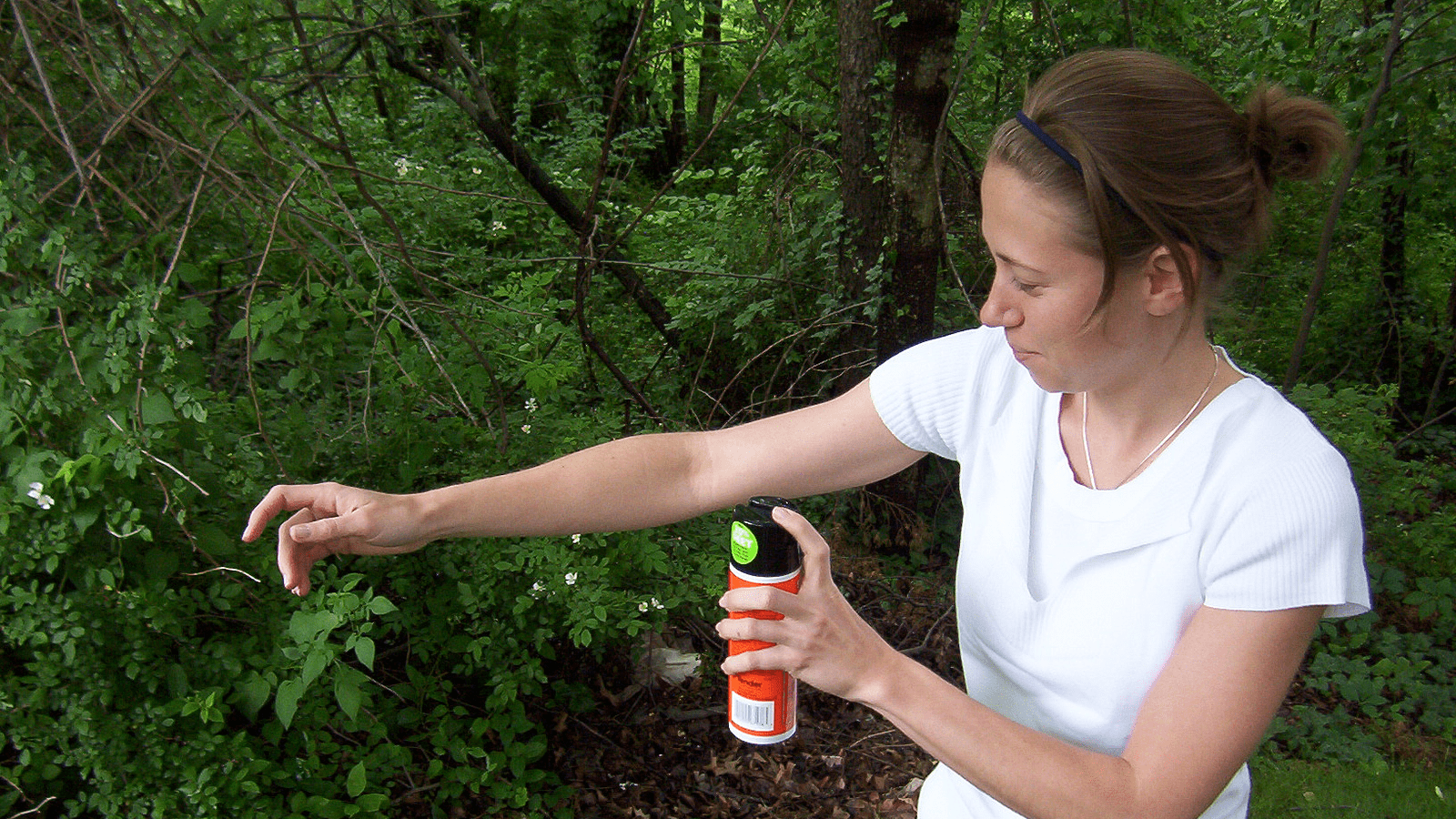
You’re reading this article because you’re hoping you don’t have to apply bug spray — but that’s the best way to actually keep the mosquitoes away.
A lot of the methods we mentioned above boast that they don’t contain DEET, but DEET is safe when used properly (Pro tip: don’t drink it). There’s a good discussion of its safety in this article from the Canadian medical journal CMAJ, which concludes that DEET is fine even for pregnant women, and even for children, when used as directed.
Cameron Webb, a mosquito researcher at the University of Sydney who helped us out with this post, acknowledges that applying repellent is a hassle (and that people often don’t bother to apply it to their whole body), but better repellents may be on the way. “In the future, there will be better ‘cosmetic’ formulations so that repellents that contain DEET and other active ingredients are more pleasant to use,” he says. Better traps could also make repellents obsolete, if researchers can manage to design a trap that’s good enough. For now, though, the spray is the way.
Illustration by Sam Woolley. Citrosa photo from Mokkie/Wikipedia. Citronella candle photo from Roger Ward. Permethrin treated clothing photo by the US Navy. Bug spray photo from Fairfax County.
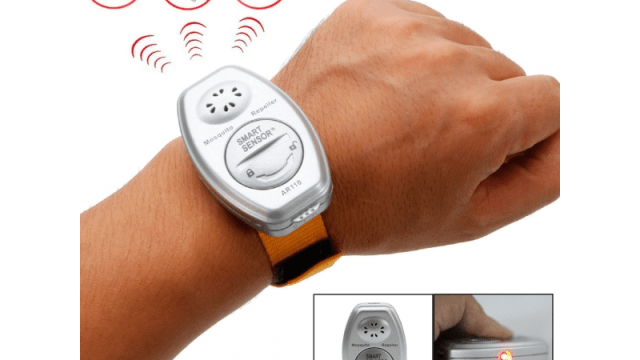
Comments